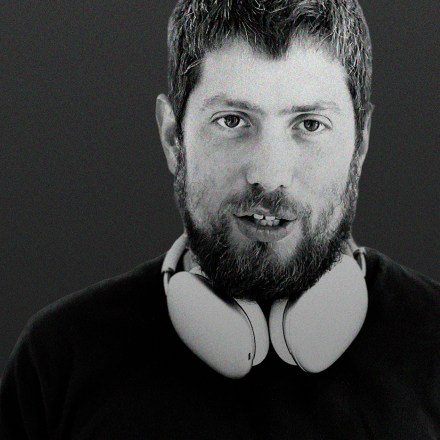
Why BitClout’s Diamondhands is HODLing to the Moon
Update — 9/23/21
On 9/21/21, BitClout announced the following changes: Previously the BitClout name applied both to an application and to the blockchain on which the application runs. The blockchain has been renamed DeSo (short for “decentralized social”) and its associated currency renamed from $CLOUT to $DESO. A non-profit entity called DeSo Foundation has been established to support the DeSo blockchain. The BitClout application itself is unchanged. The creator of BitClout and DeSo, formerly known by the pseudonym Diamondhands, has identified himself as Nader Al-Naji.
In March, a group of pseudonymous developers behind the new social network BitClout sat frantically working to keep their blockchain platform running. A soft launch had gone viral and accidentally created demand before they were ready. Their founder, who goes by the name of Diamondhands, had devoted nearly two years to the project along with newer members of the team. Now, less than 48 hours after inviting a small group of acquaintances to try a beta version, it had spun out of their control. People with millions of Twitter followers had tweeted about BitClout. Tens of thousands had joined the platform and more were flooding in every hour.
A cryptocurrency platform that lets you bid up (and down) the monetary value of users’ social identities, BitClout had quickly become the most controversial innovation in social media since Snapchat. Perhaps the blurred boundary between digital identity and financial value struck a chord following GameStop and the meme stock phenomenon. Whatever the reason, BitClout was instantly electrifying.
But it wasn’t ready. Users could buy the platform’s own CLOUT cryptocurrency with Bitcoin but couldn’t yet convert CLOUT back to Bitcoin. It quickly drew criticism from media outlets, which didn’t understand it was intended to be in beta. Unable to reach the anonymous founder, they drew their own harsh conclusions.
“I told everyone on the team, the way we survive this is we ship and we ship fast,” says Diamondhands. After a few months of doggedly debugging, open sourcing the code, and getting the platform listed on the blockchain.com cryptocurrency exchange to let users fluidly move money in and out, the team had delivered every feature they intended to launch with.
By summer A-list celebrities were embracing BitClout, from Gwyneth Paltrow to the rapper Tyga. But as for BitClout’s founding team, they’re remaining anonymous.
Diamondhands doesn’t go through life in a high-tech Daft Punk disguise. It’s not physical anonymity they’re after, but corporate. There is no CEO, board, or shareholders of BitClout — just token holders. They believe that an open, blockchain-based organization where the direction is set by the community with no corporate entity to compete with — or be shut down by — will outcompete social media’s traditional ads-driven business model.
But it’s not just about business. A big part of what attracted Sequoia’s Shaun Maguire to BitClout was Diamondhands’ passion to build a new kind of trust platform at a time when public trust in technology is low. As a true believer in the project, Shaun’s been frustrated that the transformative vision and nuance of the story was overshadowed by the early controversy. So here, Diamondhands opens up for the first time to talk about BitClout’s turbulent beginnings, the ultimate vision for the blockchain platform, and, of course, the decision to remain anonymous.
Shaun Maguire: For people who haven’t been following BitClout, what’s your elevator pitch?
Diamondhands: BitClout is a social network that mixes investing with social media. It’s an open and decentralized platform where people can invest in each other. It’s similar to Twitter and Instagram, but every creator has their own coin that allows you to invest in them. And every creator has the ability to earn money in all kinds of novel ways, from tips to NFTs.
I created BitClout because I believe we can create a business model that not only gives creators much better monetization, but also a way that fans can benefit from their growth. So when a creator blows up and becomes a superstar their fans also make money. They financially succeed with the creator, which has never been possible before. In the same way Ethereum is bringing competition and innovation back to the financial sector by creating an open platform, we hope BitClout will do the same for social media.
“I created BitClout because I believe we can create a business model that not only gives creators much better monetization, but also a way that fans can benefit from their growth.”
DIAMONDHANDS
Because you’re pseudonymous, I won’t ask you to tell your life story. But what can you tell us about the prehistory that led you to work on this?
In early 2019 I got really excited about the concept of mixing investing and social media and I started by studying every product I could find that had attempted to mix two in the past. I realized that instead of the ad-driven social network business model, we could monetize via transactions flowing through the network, which is more like what drives the value of Bitcoin and Ethereum.
By building a custom blockchain we can have all the code and all of the data totally open which creates a much more competitive ecosystem for third party apps. So where it all clicked together was realizing if your product is fundamentally money-enabled, like investing in creators, instead of monetizing data you can monetize transactions. The business model is just to maximize the number of transactions flowing through the chain which maximizes the value of the coin.
I started refining the product and building the core blockchain in May, 2019. The crazy thing is, I didn’t tell anyone about it until November, 2020. After a year and a half, it felt like I had something. And then I spun up the first few nodes and asked some friends to run BitClout nodes on the network. I brought on our first teammate, @redpartyhat, and then I started talking to people who I knew from my network to get involved and buy CLOUT.
We knew there were kinks to work out and we needed to get all the code audited before releasing it, which was the biggest bottleneck. A lot of people don’t know this—we actually weren’t planning to launch until mid 2021. But then the zeitgeist around decentralized social media hit in January, and there was all this news around GameStop that ignited a trend towards investing being a more social thing. So we accelerated everything and launched quietly in March, a lot earlier than expected.
But the product spread virally and the media started reporting on the project without talking to any of us, mainly because they didn’t know who was even behind it. Before we knew it, major names were joining left and right, and we were just struggling to keep up.
My recollection is I got a Telegram message from you, which had a website and a password to create an account, and you told me feel free to share this with two to three other people who would be additive early users. And then I think within 24–48 hours from that moment, there were tens of thousands of people on the network. So I view this as an almost accidental launch. Is that a fair characterization?
Yes, absolutely. Initially you could only use BitClout if your link had a password. That would allow us to know who was leaking it so that we could turn it off. What happened was that people with millions of followers started posting it on Twitter without the password. It was too big to turn off, too many people would get upset if we didn’t let them in, so we couldn’t really control it with the original password mechanism. Instead of trying to control it we just said, okay, we’re going to try and blitzscale the tech to keep up. Our nodes went down a few times and the network had a lot of congestion for a while, but we then got ahead of it. Since April things have been running smoothly and we’ve been shipping and delivering everything we had wanted to launch with. Long story short, it was kind of ripped out of our hands.
What did it feel like in those days when it was being ripped out of your hands? Was it exciting or terrifying?
For me, honestly, it was very difficult. I’ve been working on this for over two years and it never even crossed my mind to not ship what we promised. I deeply care about what this is. And the thing that motivates me the most is building a platform where all the data and code is totally open, because I have very high conviction that this is going to outcompete traditional social media, even at smaller user numbers.
I told everyone on the team, the way we get out of this hole is we ship and we ship fast. We tried to keep up on Twitter, but the best way to respond to anything is to actually deliver. So it was very hectic. I felt like I couldn’t deliver fast enough on what everybody wanted. But, when we actually open sourced all of the code in May, I can’t tell you how good it felt. Now it’s out there. And there are over 100 people building on it.
What about getting on an exchange, how did that feel?
Honestly, for me the price is a result of what we do. It’s great for our users that CLOUT is now listed on AscendEX in Asia and Blockchain.com, which must be among the fastest exchange listings of a layer one ever, just because I think Peter Smith (CEO of Blockchain.com) really believes in the vision. A lot of coins get listed, but no social network actually makes all their code and data open. There’s another big listing coming soon.
What do you say to criticism about associating BitClout value to people’s likeness without their permission (i.e., Elon Musk’s unclaimed creator coins)?
We pre-created accounts for the top 15,000 people on Twitter, and the main reason we did this was to prevent name-squatting and impersonation, which is typically rampant in early social platforms that don’t take a thoughtful approach to it. In addition, we allowed anyone who didn’t want their profile listed to request it be taken down simply by messaging the @bitclout handle on Twitter, as mentioned in our FAQ. And for every 100 profiles claimed, only about 5 request to be taken down (about 5%), so it’s not an issue for the vast majority of people.
You mentioned a while back that maybe you’ll get rid of BitClout.com. Tell us more about that comment and how it pertains to the bigger vision.
The long term vision is that the front end of BitClout, how people access and use it, will be very decentralized. And it’s not only decentralized in the sense of apps, but also geographically decentralized. We will essentially give BitClout.com traffic away to whoever’s doing the best in each vertical, to the point where we don’t need to run a front end anymore. Then my team can focus on what we’re best at, which is the core blockchain.
As I said, over 100 people are building on it to create their own companies using BitClout code. You see Cloutavista — our search engine on BitClout isn’t even us. It’s a third party Israeli team. @balajis funded them, but so did a lot of other people. The best way to trade the coins is actually BitCloud Pulse, not BitClout. The former co-founder and CEO of Fanduel, Nigel Eccles, is building Flick, which is the number-one mobile app right now. So if you want to use BitClout on your phone, you’re not going to use an app we built.
When developers ask if they’ll be competing with BitClout’s own apps, I tell them that the way I make money is I own CLOUT, just like everybody else. And I believe the best way to maximize CLOUT is to maximize the number of transactions that are flowing through the BitClout blockchain. It’s the same way that Ethereum actually wants Compound and Uniswap to exist as independent businesses on top of it. Same exact business model, but for the social network.
Could BitClout eventually be an all-in-one platform for creators that rolls up all the functions of Patreon, SubStack, and other crowdfunding and NFT sites?
The platform is decentralized, so it’s everybody who’s the best at what they do creating the apps for the social network. You’re going to see native social experiences built for all these different cultures. That can actually happen because all that code and data is open.
How do we get there? My goal in the short term is to build as many features for creators to monetize into the blockchain as possible to enable all of those people building on top. We just launched an NFT feature with one click to sign up and no fees. I think it’s just a matter of time, but we can clearly do the subscription stuff like Patreon and Substack. There’s also a decentralized advertising model, where every creator gets an inbox for posts that advertisers want them to share with their fans.
The coolest part about BitClout is because we’re giving away the front end, it doesn’t actually compete with the Patreons or Substacks or for NFTs with the OpenSeas or Arkanes. Actually they all want to integrate with BitClout as an additional source of income and inventory and users. And that’s all aligned because, again, all I care about is maximum transactions on the BitClout blockchain. So it’s great for everybody.
As we’ve seen more over the last year, the social aspect of investing can be pretty powerful. What do you make of it?
Investing in creators before they’ve been discovered is an inherently value-creating activity both for the creator and the follower, and it’s the core behavior that BitClout enables. It’s like a game in the sense that when someone creates something that moves you, you can go and find them on BitClout and invest in them to show your support, and grow with them in a way that wasn’t possible before BitClout. It turns regular fans of creators into not only investors, but micro-influencers for that creator. We see this habit with the social investing trends where once someone buys into something, they obsessively share it.
If you look at the stock market and at how many ordinary retail people are shorting versus buying, it’s orders of magnitude less. That alone should tell you what direction we think most of the investment behavior is going to go. And if it’s the case that there’s a lot more buy than there is sell or short, that should actually tell you what the platform is going to be like. You can look at BitClout.com and you’ll instantly see when you scroll through the comments, you’ll notice it’s really, really positive. And I don’t need to tell you it’s very unusual for a social network to be positive when it’s small.
Can you talk a little about content safety and governance, which is a big challenge for other social networks? How does it work on BitClout?
I like to give the analogy that there is a spectrum of how decentralized the internet can be. Right now we are on the very “centralized” side of the spectrum, where small moderation teams at a few companies control the vast majority of public discourse. We think this is too far on one end of the spectrum, but we also think that the opposite end, where there is total anarchy with regard to content, is even worse. BitClout sits in the middle: It leverages the same moderation scheme that governed the pre-Facebook internet, which we think deters harmful content without stifling innovation and competition.
Any website that displays harmful content is subject to both federal and civil litigation, whether its content comes from a blockchain or from a USB drive. This is what prevents harmful content from seeing the light of day on the internet today, even though there are many people who could theoretically serve it. It’s also largely how the pre-Facebook internet was kept in check, and it’s the same mechanism that prevents nodes on the BitClout network from serving harmful content.
On bitclout.com, we are exposing a subset of all of the posts on the blockchain and, obviously, for content that is harmful or illegal we will never show it on bitclout.com. Every node that runs on top of the BitClout blockchain, including apps like Flick or CloutFeed, can expose whatever subset of the posts that they want. This being said, showing illegal or harmful content would not only subject them to copious amounts of litigation, but it would also likely make it such that nobody would want to use them . That content will still technically be on the blockchain but it won’t be practically accessible.
Moreover, because all of the data on BitClout is open, an ecosystem around moderation can develop that is more robust than what can be achieved with a traditional company. For example, because the data is open, the best machine learning researchers at the best academic institutions in the world can build API’s that label all of the content on the blockchain in a way they can’t today, which can then be consumed by all node operators that want to remain compliant. This would create an economy of scale around moderation that we believe can be more robust than what’s possible within the confines of a single corporate entity. All of the data being open also allows the Federal government to better analyze the spread of misinformation, and be more involved in preventing it, than they can be when all of the content people are seeing is locked up in a corporate walled garden.
We want to touch on the decision to be anonymous, which I know is controversial. Can you talk to us and tell us why you decided to be anonymous?
The development team behind BitClout is anonymous because we think it inspires the community to decentralize faster. BitClout is not a company and it doesn’t have a CEO or a board. It’s just code and data, and we want to make sure the community feels as empowered as possible to improve it and build on top of it. There’s a guarantee, literally in the same way that you can’t lose access to Bitcoin, you can’t lose access to BitClout. So it’s the same architecture and therefore the same guarantees.
If it was a company, and if there was a CEO and a board, we think that would make it harder for people behind BitClout Pulse or Flick or any of the third party apps to really invest their lives in this effort, because it’s less credible that we’re actually decentralized.
Obviously there are other blockchains like Ethereum that do very well with a well-known founder. But again, just for what we’re doing, we didn’t want to have a Zuckerberg or a Jack Dorsey at the top. When someone talks about BitClout, it’s the first really good hook into how decentralized it is that you don’t really know who’s in charge. So I think it forces you to consider that part of the value proposition.
And my last question is, if you could do it over again would you change anything? Either in the architecture, the currency, the tokenomics, how the price increases, or the launch or non-architecture side of it?
One of the reasons we launched so quickly was we weren’t really sure how much people would want this product, but also we weren’t really sure who else was working on stuff and what would be launching. And I think we realized two things. Number one, people want this product a lot, which is incredible. But number two, we have a huge head start on the tech because I’ve been working on it for almost two years and it’s really, really hard. It’s not really possible to build a blockchain like this on top of other chains, it doesn’t scale very well. So if I could go back I would probably launch later, after we audited everything so that we could be totally open source from day one. Yeah, I probably would have waited and launched on the original timeline.


